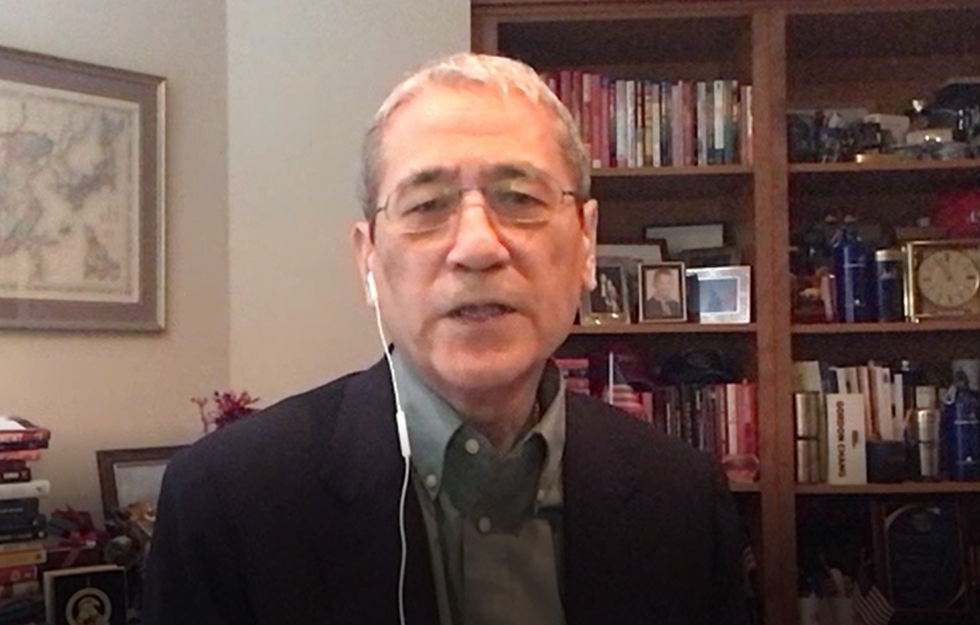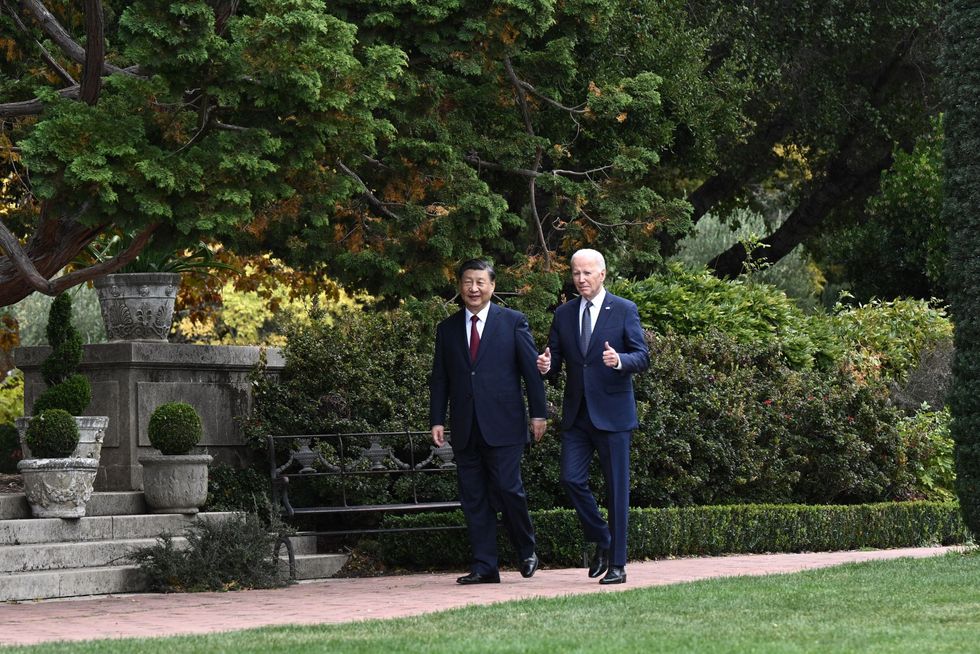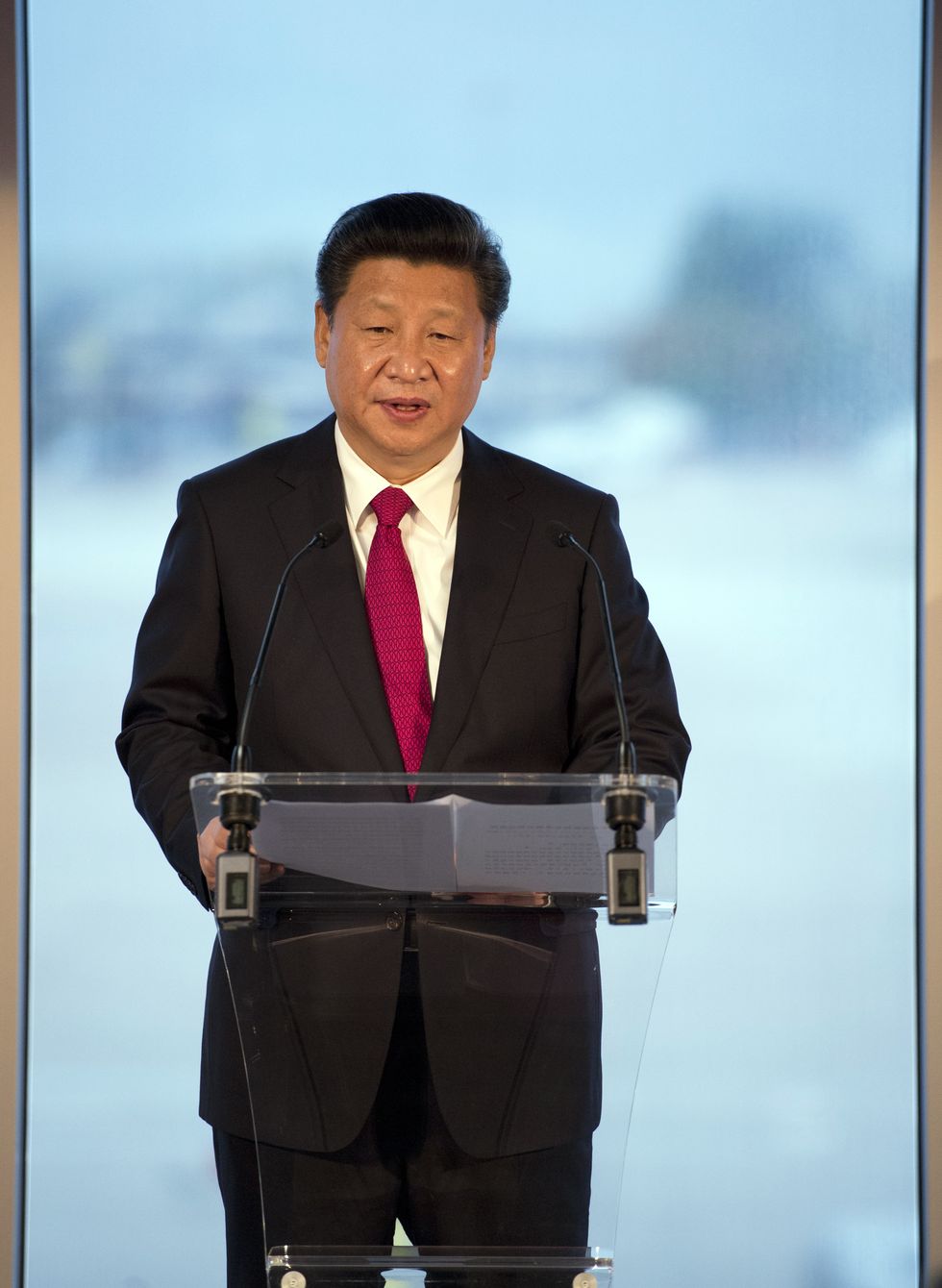Chinese soldiers ride on armoured missile carriers as they pass in front of Tiananmen Square and the Forbidden City during a military parade on September 3, 2015
GETTY
The Chinese President will most likely have the capacity to attack Taiwan by the end of the decade
Don't Miss
Most Read
Trending on GB News
Xi Jinping’s plan to invade Taiwan includes a chilling warning about attacking the United States, a foreign policy expert has claimed.
The Chinese President, who recently returned from a visit to San Francisco, is expected to have the capacity to annex the island nation by 2027.
However, foreign policy hawk Gordon Chang suggested an attempt to subjugate Taipei would result in an “all out” global conflict.
He told GB News: “This is probably going to be an all out war involving many different countries.
WATCH NOW: Gordon Chang addresses the threat China poses in the Far East
“It appears that Chinese doctrine on the first day of a war with Taiwan will target Japan and the United States for various reasons.
“So we may not have a choice. You know, we always say, well, will we defend Taiwan.
“I don't know if we're going to have that ability to make a choice because we could very well be attacked in the first moments of a war.”
Chang also argued other adversarial nations, including Russia and North Korea, could look to launch synchronic strikes.
Pyongyang was tipped by the foreign policy expert to go after parts of South Korea and Japan.
Moscow, which is still reeling from its attritional ongoing invasion of Ukraine, could look to “grab” some of Tokyo’s northern islands.
LATEST DEVELOPMENTS:
Gordon Chang
GBN
Despite much focus on Beijing’s blueprint to invade Taiwan, Chang argued the high command of the People’s Liberation Army disagree with President Xi.
“Xi Jinping has made it a test of personal legitimacy to annex Taiwan but it appears that the Chinese military is not really keen on that,” he explained.
“This is the reason why Xi Jinping has been firing a lot of general officers recently.
“I think the military understands that Taiwan is too hard a target but we are seeing some very dangerous Chinese activities in the South China Sea.”
Chang also warned China could look to target the Philippines in a move which could also drag the US into an East Asian conflict due to its obligations in the 1951 Mutual Defence Treaty.
The 72-year-old, who warned the chances of conflict are “high” and stressed “it looks like war is coming”, concluded: “[Henry] Kissinger implied that something's got to change to prevent that war but unfortunately we don't see the change that is necessary to deter China.”

US President Joe Biden (R) and Chinese President Xi Jinping walk together after a meeting during the Asia-Pacific Economic Cooperation (APEC) Leaders' week in Woodside
GETTY
He instead highlighted how China’s military buildup, response to sanctions, stockpiling efforts, surveying of American nuclear weapons, purging of dissident officers and mobilising the civilian population showed Beijing is “preparing” for conflict.
Xi’s much-reported visit to San Francisco appeared to bring about mixed results for Sino-American relations.
President Joe Biden stressed: “I believe these are some of the most constructive and productive discussions we’ve had.”
However, the pair have little common ground when it comes to climate change and Secretary of State Antony Blinken showed his dispair when Biden labelled his Chinese counterpart a “dictator”.
Despite some tetchy moments, Xi and Biden hoped to put aside confrontation and stress cooperation.
Beijing and Washington agreed to work together to fight fentanyl trafficking and hinted pandas could become “envoys of friendship”.
But Biden is committed to defend Taiwan from any attack.
 President Xi JinpingPA
President Xi JinpingPASpeaking last September, the 46th President said: “Yes, if in fact there was an unprecedented attack.”
Beijing’s foreign ministry spokesperson Mao Ning replied: “The US remarks … severely violate the important commitment the US made not to support Taiwan independence, and send a seriously erroneous signal to Taiwanese separatist independence forces.”
Mao added: “We are willing to make the biggest sincere efforts to strive for the prospect of peaceful reunification.
“At the same time, we will never tolerate any activities aimed at splitting the country, and reserve the choice to take all necessary measures.”
Taipei expressed “sincere gratitude” to Biden for “affirming the US government’s rock-solid promise of security to Taiwan”.
Taiwan vowed to “resist authoritarian expansion and aggression” and “deepen the close security partnership” with Washington.
Tensions between Washington and Beijing reached fever-pitch ahead of the disagreement when then-House Speaker Nancy Pelosi visited Taipei in August.








